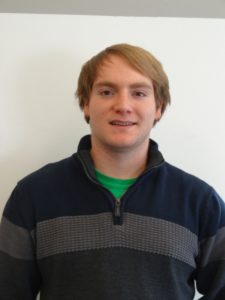By Adam Resnick
 In April, the Engaged Citizen Corps went on a field trip to the most important building in Iowa: the Iowa State Capitol. During the meeting, we met with the state representative for the Drake area, Mr. Ako Abdul-Samad. Abdul-Samad is in his fifth term in the Iowa House of Representatives and has tirelessly fought for progressive values and social justice in his time in office. Through his background as a Black Panther and civil rights activist, Abdul-Samad learned the values and methods to enact powerful change and to resist the status quo. Over time, he grew to fight injustice through elected roles and ran in his first election in 2004 when he became a school board member for Des Moines Public schools. Abdul-Samad is also the founder and CEO of Creative Visions, a non-profit in Des Moines that works to build communities and hope. During our meeting, he discussed his background and the challenges he has overcome to rise to the position that he currently holds. Abdul-Samad also spoke to us about the necessity of honesty when dealing with those different from yourself and the importance of knowing your own identity when trying to enact change.
In April, the Engaged Citizen Corps went on a field trip to the most important building in Iowa: the Iowa State Capitol. During the meeting, we met with the state representative for the Drake area, Mr. Ako Abdul-Samad. Abdul-Samad is in his fifth term in the Iowa House of Representatives and has tirelessly fought for progressive values and social justice in his time in office. Through his background as a Black Panther and civil rights activist, Abdul-Samad learned the values and methods to enact powerful change and to resist the status quo. Over time, he grew to fight injustice through elected roles and ran in his first election in 2004 when he became a school board member for Des Moines Public schools. Abdul-Samad is also the founder and CEO of Creative Visions, a non-profit in Des Moines that works to build communities and hope. During our meeting, he discussed his background and the challenges he has overcome to rise to the position that he currently holds. Abdul-Samad also spoke to us about the necessity of honesty when dealing with those different from yourself and the importance of knowing your own identity when trying to enact change.
In examining the lessons from Mr. Abdul-Samad, the first thing that stood out to me was his message: “If you allow people to put you into a box, you allow them to define you.” Through this message, Abdul-Samad meant that people are not simple. By allowing others to give you a label, they are trying to reduce you to an abstraction that they can make generalizations about. These clichés are often hurtful or inaccurate and can lead to unfair judgments about your character or actions. Relating this message to current events, as a former Black Panther and a Muslim, Mr. Abdul-Samad is an easy target for those that like to bring identity politics into daily life. In our current political climate, many politicians and citizens make vast generalizations about huge groups of people in order to win support. These statements, such as “Mexicans are rapists” or “Muslims are terrorists” reduce entire swaths of unique individuals into faceless stereotypes. It is easy to target groups because inevitably, individuals have preconceived (and sometimes racist) views about those groups. Modern politicians can capitalize on these views and baseless fear to drive people to the polls. Abdul-Samad urged us to “respect every one’s beliefs” while also recognizing our own biases. Abdul-Samad said that it is ridiculous to say that “we don’t see color” because human beings were built to see race and that is a part of our process of cognition. To ignore this essential factor of our humanity will lead to lying to ourselves, a dangerous choice that undermines the ability of individuals to have honest conversations. These honest conversations between individuals with differing views are what Abdul-Samad said are crucial to mitigating hate and working to solve issues in a way that promotes unity instead of further division.
From Mr. Abdul-Samad, I learned valuable lessons in humility. It is necessary to have the humility to accept not only the positive facets of one’s outlook, but also the negative biases that we each inevitably possess. I learned that understanding our own identities allows us to open up to those that we see as our “enemies” or those that have viewpoints contrastive to our own, in whole new ways. With an understanding of our own identity, we can honestly discuss how the actions of another party makes us feel, our concerns, and our shared aspirations. When these honest conversations occur, we find it much easier to make substantive and positive change occur than when we blindly target “cardboard cutouts” of generalized groups of other people. In all our conversation with Mr. Abdul-Samad, I learned valuable lessons in difference and activism, inspiring my own ability to make change in my community.